- myFICO® Forums
- FICO Scoring and Other Credit Topics
- Personal Finance
- Re: New Year, New Job (401k VS CC)
- Subscribe to RSS Feed
- Mark Topic as New
- Mark Topic as Read
- Float this Topic for Current User
- Bookmark
- Subscribe
- Mute
- Printer Friendly Page
New Year, New Job (401k VS CC)
Is your credit card giving you the perks you want?
Browse credit cards from a variety of issuers to see if there's a better card for you.
- Mark as New
- Bookmark
- Subscribe
- Mute
- Subscribe to RSS Feed
- Permalink
- Report Inappropriate Content
New Year, New Job (401k VS CC)
I was laid off in 2017 Dec, I was forced to withdraw from my 401k - everything of it! I used the 401k to stay afloat In 2018, my CC debt reached approx 30k (715 Fico)
I got a very good job in Jan 2019 - THANKFULLY. My employer has a VERY generous 401k plan ( matches 100% of the first 4%, and 50% of the next 4%.), should I start to contribute to it OR should i first pay off all my cc debt first AND then sign up for the 401k.? Im also making about 84k annually
Thanks!
- Mark as New
- Bookmark
- Subscribe
- Mute
- Subscribe to RSS Feed
- Permalink
- Report Inappropriate Content
Re: New Year, New Job (401k VS CC)
You can still contribute a little at first and try to pay down that debt, then once that goes down you could up your %.
What did you do with the withdraw from previous job, I assume you used it to keep afloat in between jobs, correct?
- Mark as New
- Bookmark
- Subscribe
- Mute
- Subscribe to RSS Feed
- Permalink
- Report Inappropriate Content
Re: New Year, New Job (401k VS CC)
I would do the math.
How much interest are you paying on your credit card debt? Some people will claim that it's dumb to give up "x" amount of free money from your employer. But if you paying 2x or 4x in credit card interest, than that is even dumber. You have to stop the bleed.
Another possibilty, if you qualify, would be to open up 12 month 0% APR credit cards and transfer your balances (usually at a 3% fee). Than you could re-do the math and see if you could contribute to both.
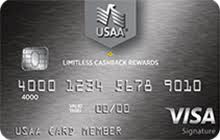



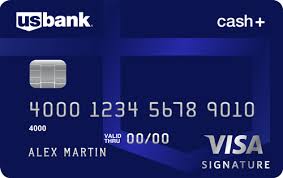
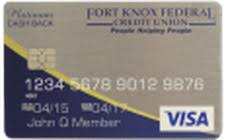


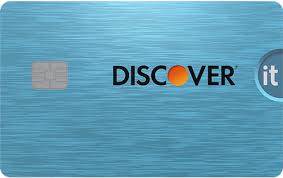
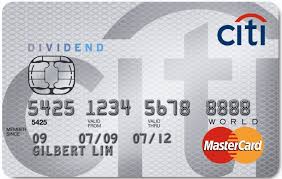
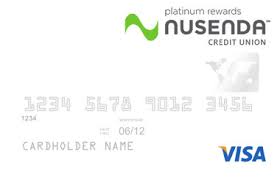

- Mark as New
- Bookmark
- Subscribe
- Mute
- Subscribe to RSS Feed
- Permalink
- Report Inappropriate Content
Re: New Year, New Job (401k VS CC)
I hope that should you ever leave your current job, it is your decision.
That being said, there is likely a vesting period for the employer match, so it is not guaranteed.
I am heavily biased towards paying down the debt.
- Mark as New
- Bookmark
- Subscribe
- Mute
- Subscribe to RSS Feed
- Permalink
- Report Inappropriate Content
Re: New Year, New Job (401k VS CC)
I'm actually going to say to shuffle around as much of that debt as you can on low/no interest balance transfers and start your 401k now.
Your employer match on 8% comes out to an initial 75% return on your contribution. Plus then that $$ is going to earn compounding interest for however many years until you retire.
I also know for me personally, it's better to start out not "missing" that money from my paycheck than to have to adjust to living on less later. I always put my raises/bonuses into 401k and savings. I have a little debt I'm knocking out now, but raises and bonuses just hit and I stuck with this plan regardless and am just budgeting a little harder to knock out my debt etc.
- Mark as New
- Bookmark
- Subscribe
- Mute
- Subscribe to RSS Feed
- Permalink
- Report Inappropriate Content
Re: New Year, New Job (401k VS CC)
@Anonymous wrote:I hope that should you ever leave your current job, it is your decision.
That being said, there is likely a vesting period for the employer match, so it is not guaranteed.
I am heavily biased towards paying down the debt.
The odds of a vesting period tends to depend on the field. In tech, having a vesting period is a death sentence for an employer as the good quality employees won't accept such terms. I have never had an employer impose a vesting period for matching funds on 401ks, and I'd walk if they tried.
OP, I would also factor your age into this equation. If you're 50+ and there's not as much compounding time on your 401k, that would reduce the loss from the employer match and contributions considerably compared to if you are 25. I would say that anyone with 30+ years until retirement should strongly consider contributing at least the first 4% into 401k as that compounding time should at least quadruple everything contributed. Less than that, there's gains in paying down interest that's 20%+ over contributing to 401k.
- Mark as New
- Bookmark
- Subscribe
- Mute
- Subscribe to RSS Feed
- Permalink
- Report Inappropriate Content
Re: New Year, New Job (401k VS CC)
@Anonymous wrote:I'm actually going to say to shuffle around as much of that debt as you can on low/no interest balance transfers and start your 401k now.
Your employer match on 8% comes out to an initial 75% return on your contribution. Plus then that $$ is going to earn compounding interest for however many years until you retire.
I agree totally. You're doubling your money on the first 4% and getting an immediate 50% return on the next 4%. Even at high credit card interest rates, you're not paying near enough in interest to forgo that kind of gain. As long as the 8% deduction from your paycheck does not impact your ability to make minimum payments, I'd go all in.
Unless you can pay off balances in short order, I'd also move them to 0% BTs and low interest loans. A couple of years ago I was paying almost $1k/month in interest. With agressive refinancing over the last 1 1/2 years, that is now down around $200. That includes several 0% BT cards (some in my name, some in my wife's) and 3 loans at 6-7% interest. I still have a lot of debt, but I'm finally starting to make some serious progress on it, where I was making very little headway when over half the min payments was going to interest.
AoOA: closed: 36 years, open: 25 years; AAoA: 11.8 years
Amex Gold, Amex Green, Amex Blue, Amex ED, Amex Delta Gold, Amex Hilton Surpass, BoA Platinum Plus, Chase Freedom Unlimited, Chase Amazon, Chase CSP, Chase United Explorer, Citi AA Plat, Sync Lowes, Sync JC Penney - total CL 145k
Loans: Chase car loan (35k/6yrs 0.9%)
- Mark as New
- Bookmark
- Subscribe
- Mute
- Subscribe to RSS Feed
- Permalink
- Report Inappropriate Content
Re: New Year, New Job (401k VS CC)
@iced wrote:
@Anonymous wrote:I hope that should you ever leave your current job, it is your decision.
That being said, there is likely a vesting period for the employer match, so it is not guaranteed.
I am heavily biased towards paying down the debt.
The odds of a vesting period tends to depend on the field. In tech, having a vesting period is a death sentence for an employer as the good quality employees won't accept such terms. I have never had an employer impose a vesting period for matching funds on 401ks, and I'd walk if they tried.
+1.
Vesting in 401k's isn't common at all though clearly some do it as Voya (who is a substantial 401k provider) has it as a data point in their app for example: namely, I've worked at literally dozens of places which didn't have a vesting in their 401k plan, nor have I ever heard of one actually. Granted most tech 401k plans aren't really that great with regards to matching and profit sharing; however, they aren't that bad.
Pension contributions on the other hand, vis a vis what I got at the NFL, can have vesting, but their 401k did not. That was literally the only place I've worked with a pension FWIW too; really vesting is an archaic holdover from people worked at one job for most of their lives, the modern economy doesn't work like that and if some company tried to foist that on me they'd have to be paying me a boatload of money (read as significantly above market) to take that gig.
Original question, harder to say: however, given compounding over possibly decades and the use it or lose it nature of retirement account contributions, I don't think I'd skip an employer match if I had one (and I recently stopped my 401k contributions on the premise I might change gigs) but admittedly 30k in CC debt interest would dwarf returns over the next few years when talking average return over time... , to be clear though, I'd be trying to refinance that one which should be feasible at 715 somewhere,





















- Mark as New
- Bookmark
- Subscribe
- Mute
- Subscribe to RSS Feed
- Permalink
- Report Inappropriate Content
Re: New Year, New Job (401k VS CC)
I would make paying down debt a priority. Chances are the interest rate on the credit card debt exceeds any employer match and "tax savings" you are receiving.
Barclays: Arrival+ WEMC
Capital One: Savor WEMC, Venture X Visa Infinite
Chase: Freedom U Visa Signature, CSR Visa Infinite
Citibank: AAdvantage Platinum WEMC
Elan/US Bank: Fidelity Visa Signature
Credit Union: Cash Back Visa Signature
FICO 08: Score decrease between 26-41 points after auto payoff (11.01.21) FICO as of 5.23, EX: 812 / EQ: 825 / TU: 815
- Mark as New
- Bookmark
- Subscribe
- Mute
- Subscribe to RSS Feed
- Permalink
- Report Inappropriate Content
Re: New Year, New Job (401k VS CC)
@sjt wrote:I would make paying down debt a priority. Chances are the interest rate on the credit card debt exceeds any employer match and "tax savings" you are receiving.
The employer match doubles the first 4% ($3,360) and matches half of the second 4% ($3,360) of his contribution. If OP puts in $6,720 into a 401k, he is going to get $5,040. The likelihood is that the 75% return on his contribution, not counting the tax savings and possible gains/loss, will be more than his credit card interest rates unless they are charging loan shark rates.
OP, you should contribute enough (8% or your salary) to your 401k to collect the free money from your employer, then put as much of the rest as you can to paying off your credit cards.